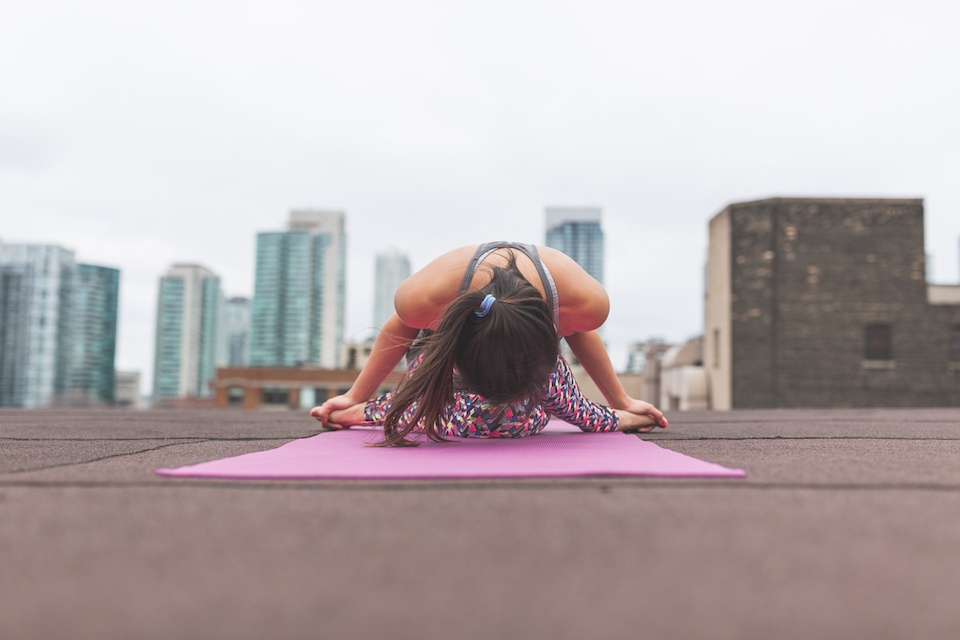It’s time for part four of the five-part series I’ve been exploring on meditation and mental health. So far, I’ve made the case for how meditation can support us by influencing how we relate to our thoughts, our emotions, and the people in our lives. This time, I want to examine the role that meditation plays in supporting our physical health. You see, a healthy body is associated with a healthy mind. That’s because our minds and our bodies are connected; the health of one influences and is influenced by the health of the other. Through our meditation practice, we come to understand and access the mind-body connection in ways that foster and expand our mental health.
One way to define meditation is as a committed practice of transforming the mind and connecting with the body. Through the practice, we learn to consciously follow the bridge of our breath, guiding our attention into the body and connecting with ourselves. Every time we find ourselves getting distracted or lost in our thoughts, we come back into our bodies and anchor our attention in the present moment. This not only serves us during our formal practice, it also aids us in every other area of our lives. Because the more practiced we are at bridging the connection between mind and body, the more aware of our physical selves we become.
With the awareness of meditation practice comes the capacity to mindfully choose how we treat our physical bodies. We start to think more carefully and be more intentional about the foods we eat, the beverages we drink, and the products we put into or onto our bodies. When our bodies are fueled and fortified in ways that support our physical health, we think more clearly, engage in higher levels of productivity, attend to our needs more efficiently, sustain higher levels of energy, and feel more alive. Improved mental health, in this way, becomes a natural byproduct of physical health—and meditation is one way to get us there.
The mindfulness we cultivate through a regular meditation practice gives us the ability to keep an ongoing awareness of our physical bodies. It enables us to be in contact with our hunger cues, so we know when it’s time to eat. It encourages us to eat and drink slowly, so we enjoy the process and realize when we’ve had enough. It let us tune into our intrinsic wisdom, choosing to eat what our bodies need instead of what our minds crave. All of this serves to reinforce the mind-body connection, thereby increasing our self-awareness, self-care, physical wellness, and mental health.
When we learn to connect with the breath and the body, we start to expand what’s physically possible for us. This is something yogis have known for centuries, which is no surprise, considering yoga is ultimately a moving form of meditation. Not only can we reach new levels of physical fitness through the foundations of meditation, we can also become highly intuitive about how we move our bodies. We can listen to the messages our bodies are sending, so we know when it’s time to be active and when it’s time to rest. We know when it’s a good idea to roll on some lavender oil and take an Epsom salt bath, or when a good old doctor’s visit is in order. To be this aware, this connected, requires ongoing attention. It’s a skill that we develop through practice, over time.
One of the coolest things about meditation is that there are endless ways we can use it to support our bodies and sharpen our minds. For example, many swimmers, basketball players, gymnasts, and runners regularly engage in visualization meditation to improve their performance. That’s because studies have shown that athletes who use visualization meditation to imagine themselves performing a certain physical activity improve as much as—or, in some cases, more than—athletes who practice actually performing the activity. How’s that for a testament to the mind-body connection?
Whether your physical health goals include losing weight, overcoming panic attacks, expanding your yoga practice, changing your physique, adopting a cleaner diet, cutting back your alcohol consumption, improving your athletic performance, reducing the intensity of chronic aches and pains, or just generally feeling more connected to your body, meditation practice can support you—and you get to enjoy the fun bonus prize of enhanced mental health!
As long as we’re enjoying this human experience, we’ll do so within the vessels of our beautiful, remarkable, wise, and resilient bodies. It’s a worthy activity, then, to connect with those bodies and treat them with love and respect. Meditation, which gives us entry to the present moment and guides our awareness within, is a gift we give ourselves in the service of our health. I invite you to begin exploring your mind-body connection through meditation, yoga, and any other practices that call to you. And I look forward to coming back to you soon with the final installment of this series!

